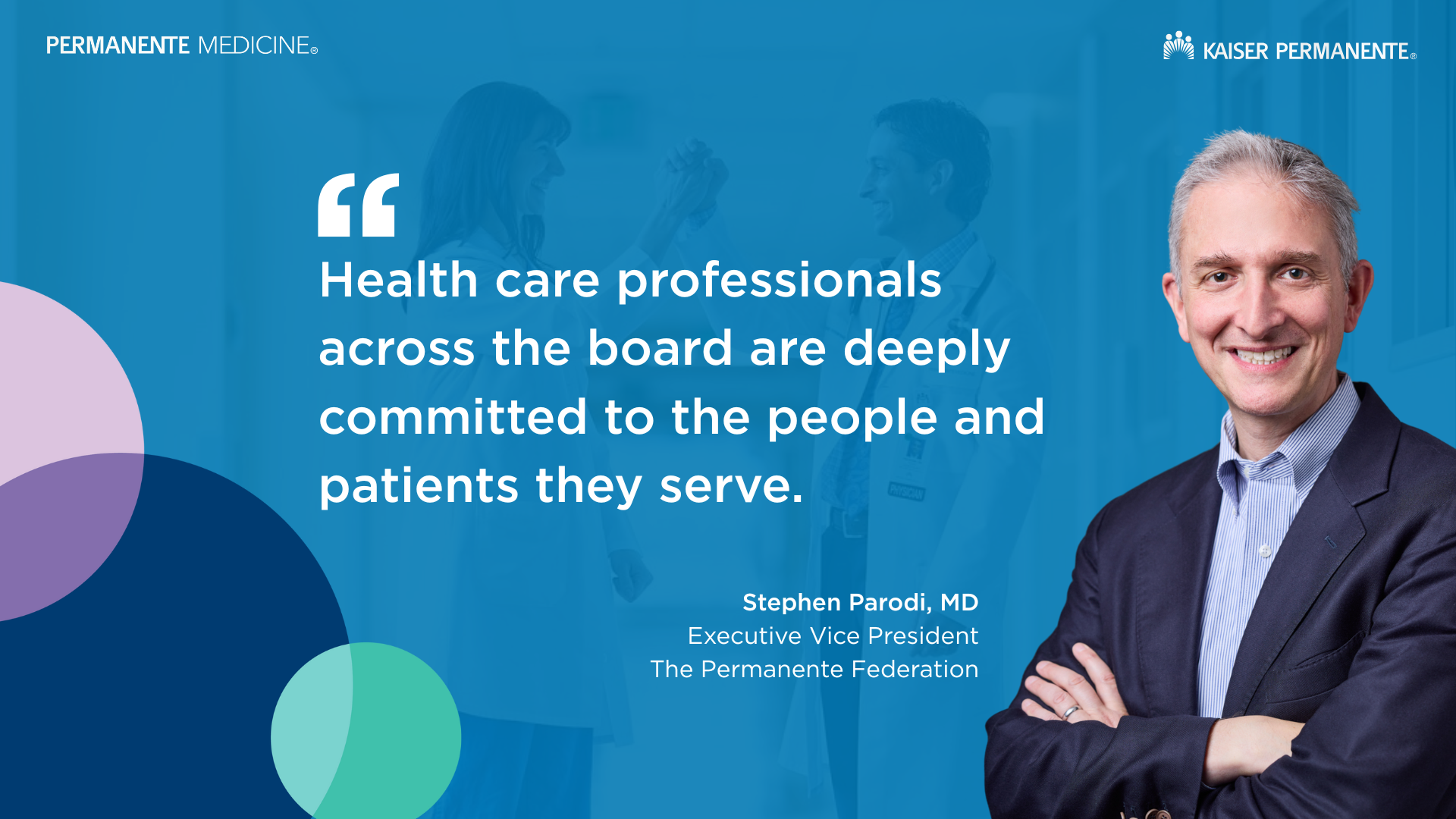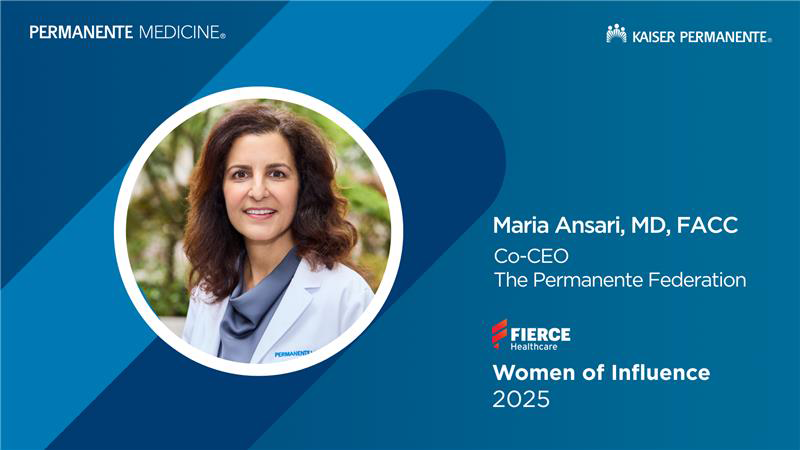Explore valuable lessons learned from Permanente physicians in 2025's rapidly changing health care landscape.

The price is wrong
Why we need to curb prices on biologics to protect patients
By Sameer Awsare, MD

I want to tell you a story about one of my patients — let’s call her Helen. After months of treatment, Helen just wasn’t getting better despite being prescribed a drug that I have used to successfully treat many of my patients. I asked her what was going on and she confided that she wasn’t taking her medication daily as prescribed.
The reason: She couldn’t afford to pay the cost of her medication, so she was only taking it every other day.
This problem is widespread: As many as 1 in 4 people have difficulty affording their medication. When patients can’t afford their medications, doctors can’t deliver the high-quality care they strive to provide, which puts patient health and safety at risk. By not adhering to her medication schedule, Helen could have ended up in the Emergency Department, which would have resulted in higher costs not just for her but for the entire health care system.
It’s disheartening that we’re still battling high drug prices in the United States when many well-documented, actionable solutions exist. Kaiser Permanente appreciates the current administration making this issue a priority — and reaching out to health care industry leaders to learn about solutions we know will help lower prices and protect patients.
As a first step, the U.S. Department of Health and Human Services issued a sweeping request for information on its “Blueprint to Lower Drug Prices and Reduce Out-of-Pocket Costs” in May 2018. Kaiser Permanente submitted a detailed response in July.
Then in September, the Food and Drug Administration offered a request for comments on the agency’s Biosimilars Action Plan, and once again, Kaiser Permanente jumped at the chance to respond.
I want to explain why it’s so important that we address the high cost of this particular class of biologic drugs — one of the fastest-growing categories of prescription-drug spending — and the potential that biosimilars have for increasing competition and reducing drug spending.
Bio-whats? A quick primer
“Biologics” are drugs derived from living organisms and used to treat conditions such as rheumatoid arthritis, multiple sclerosis, and some cancers. Treatment costs for some biologics can reach hundreds of thousands of dollars per year, imposing crippling costs on patients and the health system.
It’s disheartening that we’re still battling high drug prices in the United States when many well-documented, actionable solutions exist.
“Biosimilars” are highly similar variants of biologic drugs that have been proven to show no meaningful clinical difference in terms of safety, purity, and potency. These drugs must meet high evidentiary thresholds to establish either “biosimilarity” or “interchangeability.” I encourage you to check out the Kaiser Permanente Institute for Health Policy’s paper, Drug Policy 101: Biosimilars, for more information.
Leading the way in using biosimilars
At Kaiser Permanente, we believe fostering a robust market for biosimilar competition is essential to lowering prices for biologic drugs.
We lead the market in biosimilar usage due to a strong commitment across our integrated care system to providing both our members and employees with balanced, evidence-based information about the medications we prescribe. We’re eager to share best practices from our efforts to facilitate clinically appropriate use of biosimilars in the few cases where they are available to our patients.
Several factors have contributed to Kaiser Permanente’s success in this space, including:
- Strong prescriber confidence in our formulary that is evidence based and developed in partnership by our Permanente physicians and pharmacy
- Physicians and care teams partnering with our members when making prescribing decisions
- Our ability as an integrated care system to leverage, generate, and disseminate robust clinical data demonstrating biosimilar safety, efficacy, and value
- A culture of sharing biosimilar success stories within our organization
Policies that restrict marketing by pharmaceutical companies in our facilities and to our physicians
Increasing biosimilar competition
Despite our success in encouraging the use of biosimilars, Kaiser Permanente — and health care leaders around the country — remain deeply concerned about the burden of unsustainably high prices of biologics and their impact on our patients.
The FDA has historically been slow to approve biosimilars for use in the United States, licensing 12 and making only 4 available to patients. Compare that number with the more than 40 biosimilars available in Europe. However, we appreciate the ongoing efforts by the administration, the FDA, and Congress to reduce the backlog of generic-drug applications and increase approvals for biologic drugs, while preserving important quality safeguards. And we strongly support efforts to increase generic competition and market penetration, especially for biologics.
To encourage pharmaceutical companies to continue to develop biosimilars that will drive down costs, we need more health plans to use them. Other health plans have lower utilization because either their pharmacy benefit managers don’t carry biosimilars or because it’s been difficult to encourage physicians to switch their patients.
But patients like Helen should not have to choose between taking the medication she needs to stay healthy or paying her rent or grocery bill. We can — and must — do better by our patients.
Sameer Awsare, MD, is an internist and an associate executive director of The Permanente Medical Group, which provides care to Kaiser Permanente members in Northern California. Dr. Awsare oversees pharmacy, adult and family medicine, and opioid initiatives, among other operations. This is excerpted from an original post on the Institute for Health Policy site.


